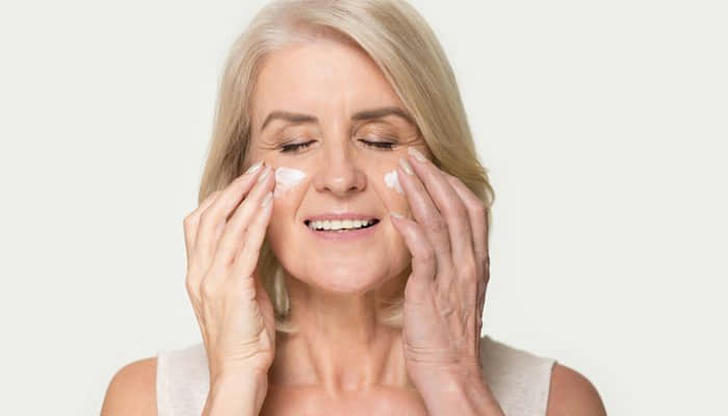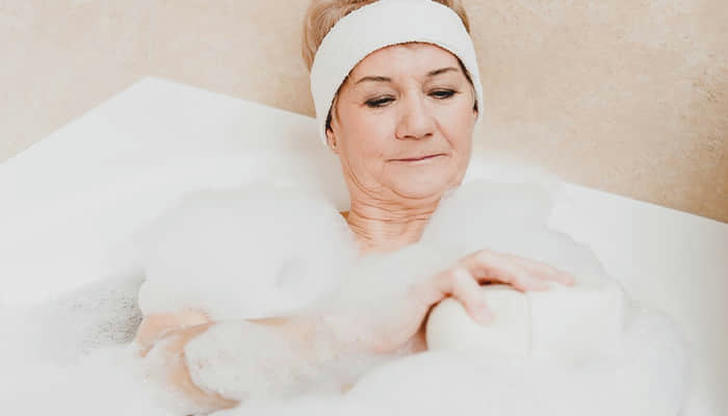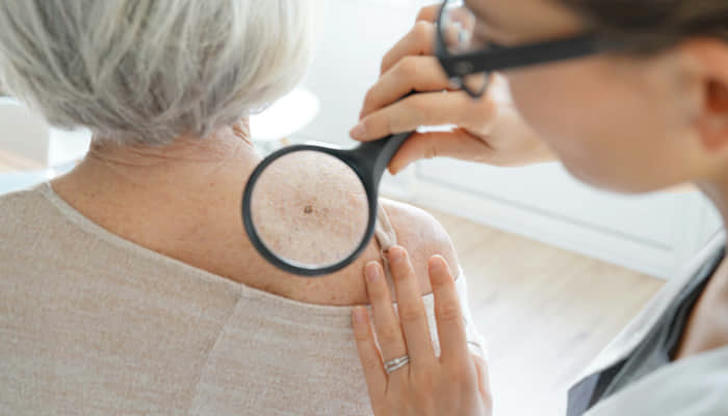6 Skin Care Tips for Your 60s and 70s

In our 60s and 70s, skin often becomes dry and prone to irritation due to its thinning and increased water loss. Factors like medications and medical conditions can exacerbate these issues.
Fortunately, there are effective ways to improve both the feel and appearance of your skin through proper skincare. Dermatologists recommend several adjustments for skincare routines during this age:
1.Adjust Bathing Habits for Dry Skin Relief:
Simple changes in your bathing routine can alleviate dryness and prevent it from becoming severe:
• Opt for a gentle, fragrance-free moisturizing bar soap, cleanser, or body wash to cleanse without drying out the skin. Ingredients like glycerin, hyaluronic acid, and lanolin help to retain moisture.
• Use warm water instead of hot water, which strips natural oils and worsens dryness.
• Wash with a soft cloth rather than harsh scrubbing tools.
• Keep bathing sessions brief, lasting only 5 to 10 minutes. You may not need to bathe daily.
• After bathing, pat your skin gently to leave some water on the skin before applying a creamy, fragrance-free moisturizer designed for dry skin.
Moisturizing immediately after bathing helps to lock in moisture and restore the skin's protective barrier. For very dry skin, opt for ointments over creams as they are more effective in retaining moisture.

2.Use a Humidifier in Dry Air Conditions:
Heating and air conditioning systems can reduce indoor humidity, leading to dry and itchy skin. Maintaining indoor humidity levels between 45% and 60% helps alleviate dryness. You can monitor humidity levels with a hydrometer, available at hardware or home improvement stores.
3.Protect Your Hands with Gloves:
Wear gloves while engaging in household chores and gardening to shield your skin from exposure to chemicals, sunlight, and other irritants. This practice also reduces the risk of skin injury.
4.Ensure your skin is shielded from the sun.
If you're noticing more wrinkles, age spots, bruises, or patches of discolored skin, you might question whether sun protection is still necessary.
It absolutely is! Even now, protecting your skin offers numerous advantages. It helps prevent new age spots and uneven skin tone, reduces dryness and thinning of the skin, and lowers the risk of skin cancer.
To safeguard your skin from the sun’s harmful rays, dermatologists advise the following:
• Seek Shade: Stay in the shade when outdoors, especially between 10 a.m. and 2 p.m., when the sun's rays are strongest.
• Wear Protective Clothing: Opt for lightweight, long-sleeved shirts, pants, wide-brimmed hats, and UV-protective sunglasses whenever possible. Look for clothing labeled with an ultraviolet protection factor (UPF) for enhanced protection.
• Apply Sunscreen: Use a broad-spectrum, water-resistant sunscreen with SPF 30 or higher on all exposed skin.
5.Avoid Fragrances:
Fragrances can irritate your skin. To prevent and alleviate dry, itchy skin, avoid perfumes, colognes, and skincare products containing fragrance. Choose products labeled as "fragrance-free."
6.Check for Skin Cancer Signs
As you approach 50 years old, the risk of skin cancer and pre-cancerous growths increases. Regularly inspect your skin for any changes or unusual spots. Early detection is key.
If you notice a spot that looks different, changes, itches, or bleeds, consult a board-certified dermatologist promptly.

Seeking Help from a Dermatologist:
While proper skincare is important, medications, surgeries, and health conditions can affect your skin over time. A board-certified dermatologist understands these impacts and can create a tailored treatment plan. They can help manage skin changes like age spots and wrinkles safely and effectively.
